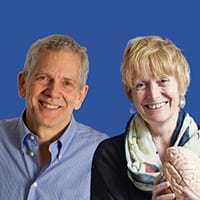The Science of Coaching
For the past six years, we have been working together to deliver workshops that combine coaching and neuroscience. This collaboration has demonstrated conclusively to us that coaching and neuroscience are good bedfellows and that each discipline has much to offer the other. In this article, we outline some of the ways that we have found these disciplines to add mutual value.
Given that every behavior, emotion and thought we have depends on activity in our brains, it is a tautology to say that any changes coaching brings about will be underpinned by changes in the brain. All effective coaching is “brain based.” An understanding of neuroscience, however, can add to this by indicating why particular techniques are effective and advancing techniques by attuning them to the way that the brain actually works.
Neuroscience Enhances Coaching
One example of how neuroscience can enhance coaching is through our growing understanding of neuroplasticity and epigenetics. Knowing that the brain is capable of change throughout the human lifespan is fundamental. But, that’s only part of the story. It’s not just that we got lucky, we now also have compelling evidence that this is what it is specifically geared to do. Having some basic understanding of the mechanisms that underpin this can be helpful in overcoming limiting beliefs about what is possible in terms of learning and change in adults. It is simply not true that it’s all downhill after age 30, 40, 50…
In addition, neuroscience research points specifically to the role of appropriate experience in creating new learning. Therefore, it indicates how best to create change. Behaviors change when we create the opportunities for appropriate experience. Our brains rewire when we do something different—we sculpt our own brains through repetition of the new behaviors, thought patterns, or skills we want to learn.
Another way that neuroscience can contribute to coaching is through the creation of new tools and the refinement of existing tools, based on our understanding of how the brain works. In this domain, we have found that understanding what happens in the brain when we move from exploiting an existing role, skill or ability to exploring new options has led us to the development of a new coaching tool that is effective in helping people who are considering major life changes.
Similarly, an understanding of how the brain processes reward and punishment, and how this feeds into decision-making, has allowed us to refine existing tools to make these more effective. Specifically, we understand that individuals have little explicit understanding of what makes them happy. By making this explicit, we can help people redefine their goals so that they can make best use of the way their brains work.
Coaching Enhances Neuroscience
Just as neuroscience contributes to the domain of coaching, we also find that coaching contributes to neuroscience. There is one obvious way in which this is the case. In our experience of working directly with research neuroscientists, it seems that while they understand what the brain does and how it does this, they are often completely blind to the implications of this understanding and are therefore unable to translate their findings into effective tools that can help people in their day-to-day existence. Thus, an understanding of the tools of coaching has helped illuminate where our current understanding of neuroscience can contribute the “why” to the already existing “how to.”
Translation of the “why” of neuroscientific research into the “how” of coaching has been fundamental to our collaboration in determining which directions to explore in the exponentially expanding field of neuroscience. It has helped to direct our focus towards neuroscience research on the more obvious areas, such as neuroplasticity, decision-making, self-regulation and habit formation; and it has also led us to consider what we know about the neuroscience of pride, admiration, compassion and mindfulness. We have considered not only the positive aspects of (neuro)psychology, but also of clinical neuroscience and the neuroscience of stress to increase our understanding of how to help individuals work best with the current architecture of their individual brains.
Through this awareness of the tools of coaching, we have also been able to spot new literature that increases our understanding of coaching in interesting ways. For instance, recent neuroscience research has explored the human capacity for empathy and has demonstrated that one of the key areas of the brain that is essential for empathy is the temporoparietal junction (TPJ). Specifically, this area of the brain differentiates between our feelings that are related to our own experiences and feelings that are the result of other people’s experiences. By being able to differentiate these, we know when to empathize with others.
One of the consequences of this is that empathy is outwardly directed, so we are much less able to empathize with ourselves. This is highly relevant to coaching since it indicates why coaching can be so effective by allowing people to see their own problems mirrored back to them. This is the basis of cultivating the skill of empathizing with oneself and can help to balance the critical inner voice.
While coaches may have known that this is a benefit of coaching, in our experience, being able to inform both coaches and clients why they are less able to empathize with themselves—and then showing them how to become more empathetic to themselves —can have dramatic effects on their levels of self-compassion.



Interestingly enough Ann Betz, PCC, CPCC published a very interesting paper on the Neuroscience of the ICF Core competencies. We actually have real coaching and neuroscience expertise in our very own community.